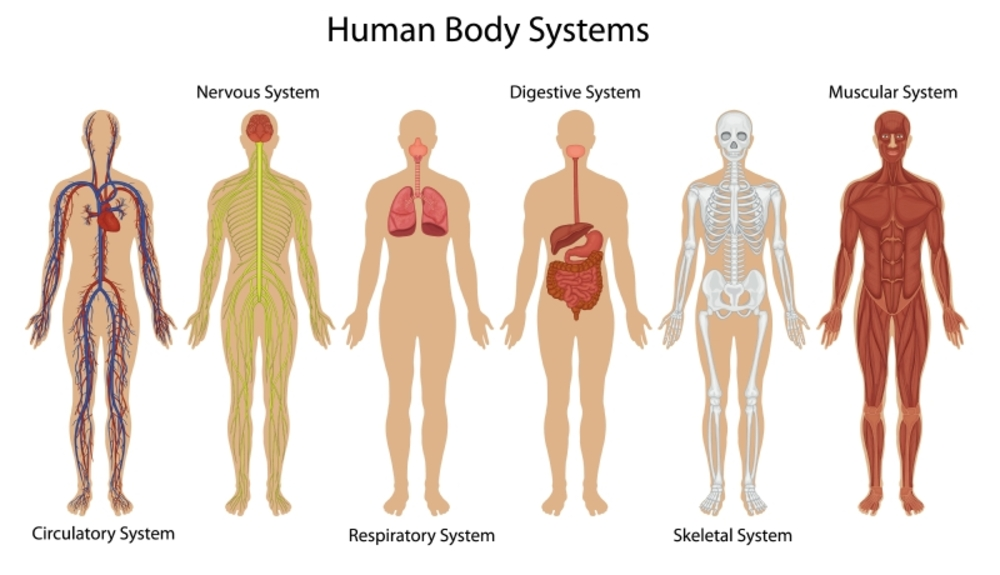How Can Stress Affect The Different Systems In Your Body?
How Can Stress Affect The Different Systems In Your Body?

How Stress Affects Your Body
You are already late for an important meeting, yet you are sitting in rush-hour traffic as the time passes quickly. “Send the stress hormones!” is the message your hypothalamus—a miniature control tower located in your brain—sends to your body. Your body’s “fight or flight” response is controlled by these same stress hormones. Your heart rate increases, you begin to breathe faster, and your muscles tense up, ready to act. Your body reacts in this way so that you can respond quickly in case of emergencies. However, you’re putting your health at risk if your body overreacts and sends the stress signal all the time.
Everyone is bound to experience stress on occasion, as it a natural reaction to everyday life—both physical and mental. Stress can be triggered by everyday events, such as work or family schedules or more life-changing events, such as the death of a loved one or divorce. When it comes to situations that need to be dealt with immediately, stress can be a positive thing for your health, like helping you cope with situations in which you are in danger. Your body has the ability to release hormones that cause your heart rate to increase and your breathing to get faster, as well as readying your muscles for action.
However, when your stress levels stay elevated for longer than necessary because your stress response doesn’t know when to back, your health can suffer. Your overall well-being will pay and you can experience a variety of symptoms if you suffer from chronic stress, including:
- anxiety
- depression
- headaches
- insomnia
- irritability
Endocrine and central nervous systems
Your “fight or flight” response is controlled by your CNS (Central Nervous System). Your hypothalamus, located in your brain, gets things started by signaling your adrenal glands to release cortisol and the stress hormones. In an emergency, these hormones get your heart rate going and send your blood rushing to the parts of the body that may need to react—your muscles and other necessary organs.
Your hypothalamus is supposed to let your body know when the threat is gone so your body can return to normal. The response will continue if the stressor doesn’t go away or the CNS “forgets” to return to normal functioning.
Behaviors such as alcohol and drug abuse, eating disorders, and social withdraw are all symptoms of chronic stress.
Cardiovascular and respiratory systems
Your cardiovascular and respiratory systems are both affected by stress hormones. In an effort to quickly deliver oxygen-rich blood to your body, you breathe faster during the stress response. It can become very difficult to breathe in during the stress response if you suffer from a breathing problem such as asthma or emphysema.
Your heart pumps fast under stress. In order to make sure you will have enough strength to react in a stressful situation, your body diverts more oxygen to your muscles and the stress hormones make your blood vessels constrict. Unfortunately, this can raise your blood pressure.
Frequent or chronic stress can potentially make your heart overwork itself. Your risks for having a stroke or a heart attack increase when you have high blood pressure.
Digestive system
In order to give you a boost of energy in response to stress, your liver produces extra glucose (blood sugar). Those who are under chronic stress are a greater risk to develop type 2 diabetes because your body may not be able to keep up with the increases glucose.
Your digestive system may get upset as a result of the hormone rush, fast breathing, and higher heart rate. An increase in stomach acid makes you more likely to suffer from heartburn or acid reflux. While stress cannot cause ulcers (H. pylori bacteria), it can make your existing one act up or increase your risk of getting them in the first place.
As a result of stress, food doesn’t always move through the body normally, which can cause nausea, vomiting, upset stomach, diarrhea, or constipation.
Muscular system
When you are in a stressful situation, your muscles naturally tense up for protection. Once you relax, they are supposed to ease off. However, those who are under constant stress, your muscles remain tense, which could cause back and shoulder pain and headaches. This could lead to chronic pain, which may have you resorting to unhealthy pain medications and it will also discourage you from exercising.
Reproductive system and sexuality
Both your body and mind are affected by stress. When you are under constant stress, you may lose your desire to be intimate. Although short-term stress can increase testosterone in men, this response does not last long.
Long-term or chronic stress can cause a man’s testosterone levels to drop over time. Lower sperm production and erectile dysfunction or impotence can occur. An increased risk of infection in the male reproductive system can result under situations of chronic stress.
The menstrual cycle can be affected by stress, leading to irregular or painful periods. The physical symptoms of menopause may be worsened by chronic stress.
Immune system
The immune system actually gets a boost from stress in immediate situations, helping you heal wounds and avoiding infections. However, your immune system may weaken as a result of stress hormones, reducing your body’s response to unwanted invaders.
People who experience chronic stress are more likely to get the flu or a cold or some other infection. Your recovery time from an illness or injury is usually longer if you are under stress.
Here is what you can do!
Explore what Well Managed Mind has to offer. WMM has the techniques and abilities needed to help people dealing with chronic or recurring stress, as well as all other negative feelings. Well Managed Mind techniques are able to trace back to the past experience or scenario, find what is causing the negative emotion, and allows you to learn quick fixes that will help you get back to your day feeling great. Once you’ve learned your WMM techniques, and you become triggered or stressed, you have multiple quick fix tools at your disposal that are catered to you, allowing you to get past the negative emotion quickly, instead of spending large amounts of time using traditional general self-help techniques.
How To Make It Happen
WMM techniques minimize the frequency of negative emotions occuring, and they also arm you with your own way of overcoming them when they do happen. Give yourself peace of mind by gaining these techniques, so that you know you can deal with any emotion that life throws at you. Click Here to explore Well Managed Mind’s solution to stress, and schedule a free consultation, and join our program today!

